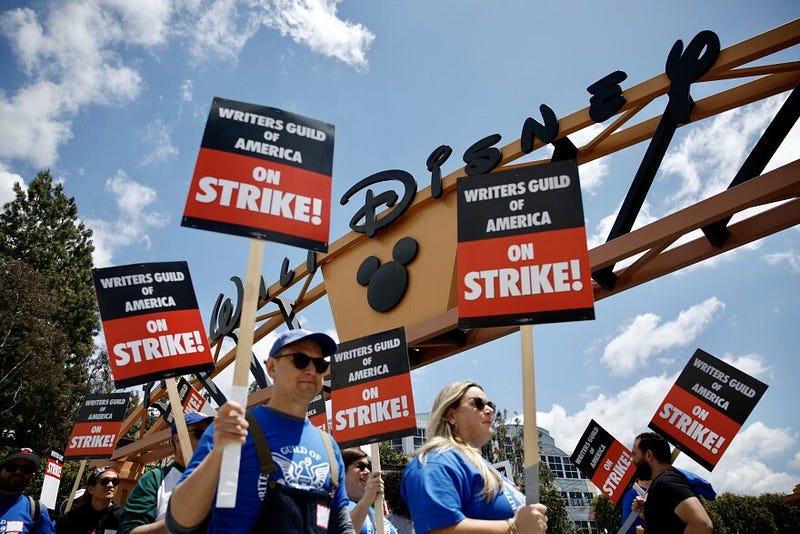
After 148 days of striking, the Writer’s Guild of America (WGA) has finally reached a deal with the Alliance of Motion Picture and Television Producers (AMPTP). The deal comes months after writers on and between both coasts and the full membership of the WGA voted unanimously to sanction a strike after complaints of harsh working conditions, insufficient pay and calls for change in the new landscape of streaming and TV which does not allow writers to maintain a sustainable living. On Sunday Sept. 24, the WGA released a statement that they had finally reached an agreeable negotiation with the AMPTP to grant a deal that guarantees benefits for writers, wage increases, residuals in streaming and protections against A.I. technology. While the union still has to vote to ratify the complete contract, the future for struggling television writers looks much more promising and protected than it did before May 2.
As the WGA has explained through various news outlets over the past five months, what precipitated this unprecedented strike by the union was declining quantity of pay for writers. Many of the over 11,500 writers the union represents now work for shows on streaming services which not only have shrunk to half the size of traditional network TV season orders, but also have shrunk the number of writers hired to create a show. Because network TV shows used to be ordered for 20 to 22 episodes a season, writers had months of guaranteed pay and work to rely on, and if in between seasons or transitioning to a new show, residuals from those network TV shows were paid to the writers to keep them afloat between jobs. Streaming services do not have residuals or any way to financially compensate writers for creating a wildly successful show on the platform after they had been hired for their set amount of work in pre-production, and even if they did, most popular TV shows are 10 episodes or less these days. This cuts the amount of residuals even further than what they would have been on a moderate to wildly successful network TV show. An increasing number of financial strains on writers were the main reasons for the WGA issuing the strike, other demands included expanding writers rooms to employ more writers, as well as a new system for streamers to deliver residuals to writers whose shows are successful on the platform and protections against A.I. generated scripts or scripted material that takes jobs away from already struggling writers.
Actress and SAG-AFTRA President Fran Drescher gave an inflamed speech the day the strike began, calling on the unfair conditions the writers today are facing while the CEOs of major streaming companies only continue to get richer despite not offering more compensation in earlier negotiations. “We are the victims here. We are being victimized by a very greedy entity. I am shocked by the way the people that we have been in business with are treating us…I cannot believe it, quite frankly, how far apart we are on so many things. How they plead poverty, that they’re losing money left and right when giving hundreds of millions of dollars to their CEOs. It is disgusting. Shame on them. They stand on the wrong side of history,” Drescher said at the SAG and WGA press conference. Since that moment, writers have been on the picket lines of major studios all throughout Hollywood and across America with their sister union of actors SAG joining them in a strike in July. SAG has still not reached a deal with the AMPTP to remedy wage concerns and set conditions for working actors.
The new deal’s exact language hasn’t been released yet, but WGA representatives have said the deal meets many of the writers’ primary demands and main ground for the strike. The deal increases pay rates, pension and healthcare guidelines, contract durations, expands sizes of the writers room and even maintains streaming residuals. The use of A.I. has also been strictly prohibited so as not to take away jobs or pay from WGA writers.
While there will certainly be time before many writers will be back to work, network TV shows have already begun to ramp up production again. Although it has yet to be seen how these new guidelines will change the machinery and experience of the entertainment industry for writers and other industry professionals, it is safe to say that the WGA has won their battle against the AMPTP and entertainment industry for better pay and treatment: a testament to the steadfast power of unions.
















